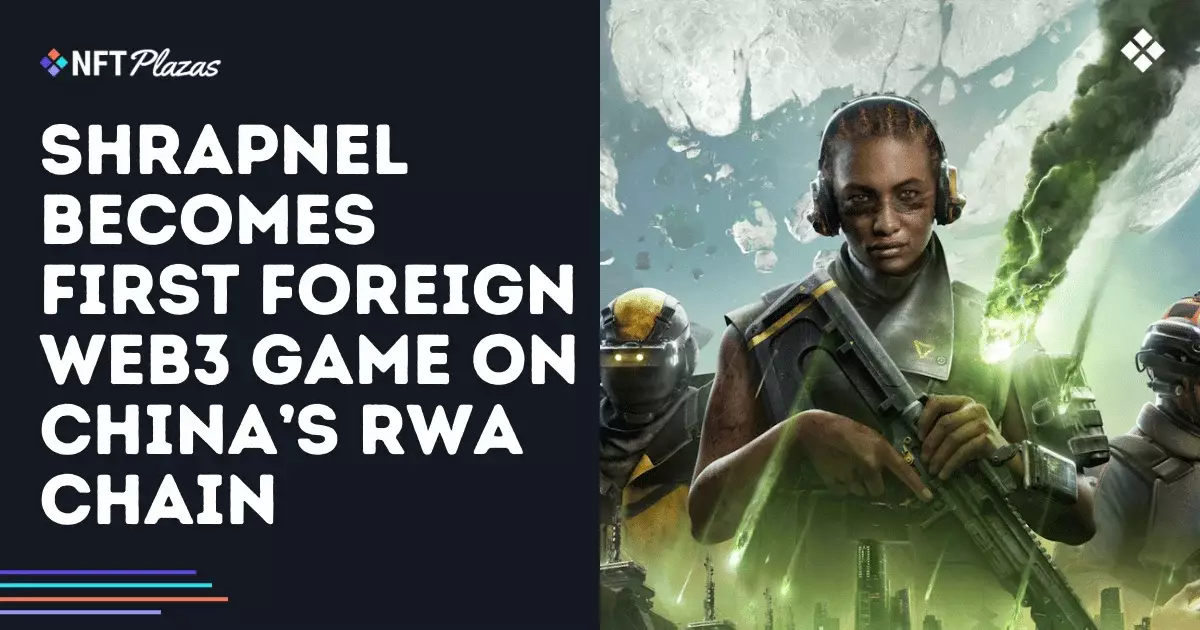Immutable’s recent unveiling of the Perpetual Rewards programme is certainly stirring excitement among NFT gaming enthusiasts. As players scramble for their chance at winning crypto in weekly draw pools, it’s vital to dissect the implications of such an ambitious design. Is this a game-changer or just another shiny gimmick in the evolving world of blockchain gaming? On the one hand, this initiative seems innovative; on the other, it might reveal inherent issues in sustainable engagement.
The program is appealing, boasting a total pool of 235,758.46 $IMX tokens, worth approximately $93,000 at launch. Players can now use in-game currency, known as Gems, to secure entries into weekly prize draws—an opportunity certainly not to be overlooked in a space filled with incentive schemes. However, while innovative systems indeed foster engagement, they could also cultivate a gaming environment contingent on monetary rewards rather than genuine enjoyment or exploration.
The Risk of Competing Incentives
The model of rewarding players based on their activity might inadvertently create a competitive atmosphere that prioritizes the accumulation of rewards over the actual gaming experience. Instead of players immersing themselves in the narrative or enjoying gameplay, there may be a tendency to chase after rewards, leading to a ‘grind mentality.’ Players could become so focused on earning Gems for rewards that the intrinsic value of the game diminishes. Art, creativity, and collaboration among players might take a backseat to sheer competition for crypto assets.
Moreover, there’s the concern of accessibility. While Immutable has championed inclusivity, the tier system used in the Perpetual Rewards programme—which segments prizes based on the rarity of the Keys—creates an uneven playing field. Players who might invest less time or resources into the platform may find themselves in a constant struggle to compete with those who can dedicate more time or finances. This battle for superiority could lead to disenchantment and disengagement from the gaming community, contradicting the harmonious spirit that gaming ideally fosters.
Potential for Lackluster Returns
The distribution of prizes raises further concerns. With various tiers in play, the disparity in rewards might discourage participation. For instance, if the Epic Tier offers only slightly superior rewards compared to the Uncommon Tier, many players might feel that their efforts are not being adequately compensated. Potential players could be discouraged before even entering the draw, which undermines the intended incentive.
Additionally, Immutable promises a Mythic Draw that captures a whopping 25% of the total prize pool. However, the reality of securing one of these Mythic prizes may not live up to the hype. With 100 random winners receiving prizes that range drastically, the likelihood of walking away with significant gains is inherently low. Players could find themselves unsatisfied with minutiae, leading to a spiral of declining interest over time as the allure of easy crypto recedes.
The Blockchain Dependency Dilemma
There lies another crucial angle to examine: the reliance on blockchain technology itself. While blockchain represents a revolutionary shift in how we engage with digital goods and currencies, it is not without faults. Issues such as transaction fees, delays, and environmental concerns could shadow players’ experiences with the Immutable rewards system. A hiccup in the blockchain could expose players to a frustrating experience, potentially alienating those not well-versed in the technology.
Moreover, players participating in a rewards setup become entwined in a system that relies heavily on market volatility. As cryptocurrency values fluctuate wildly, the rewards, once deemed desirable, could quickly lose their worth. This environment creates an inherent instability, a gamble that players are undertaking not merely for entertainment, but for economic gain.
Incentivizing the Wrong Behaviors
Lastly, the culture fostered by systems like Immutable’s could inadvertently endorse negative behaviors. Players might engage in practices that undermine the spirit of fair play, such as exploiting loopholes in the system or using automated bots to gather Gems rapidly. This behavior creates a toxic culture where authenticity in gameplay is compromised, giving rise to a slippery slope of issues that could ultimately tarnish the platform’s reputation.
The innovation brought forth by Immutable’s Perpetual Rewards programme is indeed intriguing, opening new doors for engagement and excitement. Yet, underneath the glitzy surface lies a labyrinth of potential problems—one that could derail the very experience NFT gaming set out to transform. As we navigate this brave new world, we must ask ourselves: is the pursuit of profit worth the risk of losing the artistry and camaraderie that makes gaming truly magical?


Leave a Reply